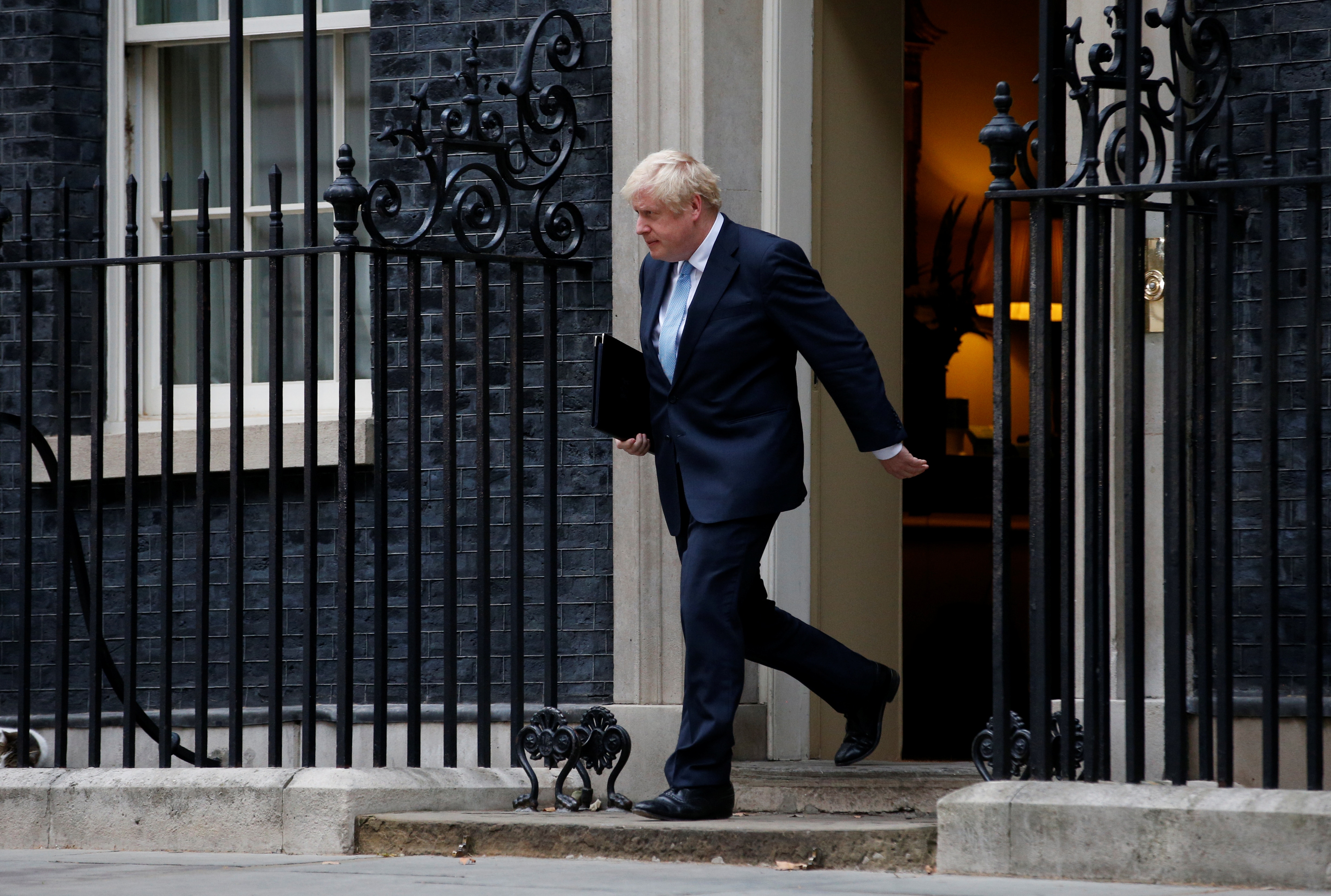The British House of Commons officially resumed on Tuesday (September 3). In the face of the threat of opposition parties and nearly 20 Conservatives moderates to seize the decision of the congressional agenda, Johnson held an emergency cabinet meeting on Monday (September 2), the Prime Minister’s Office immediately sent a message to the major British media, if voted on Tuesday The Johnson administration was defeated and Johnson will decide to advance the election on October 14.
After the cabinet meeting, Johnson stated that he “will never seek a bailout from Brussels” and criticized that if Congress legislates to prevent Britain from leaving the European Union on October 31, it will “cut off” the “last leg of the UK to fight for EU concessions.” “.”
Although Johnson claimed that he and the British people did not want to see the early elections, the cabinet members had actively sent out news that Johnson had been on the mutton curry lunch at Chequers Court on Sunday (September 1). The decision to advance the election. Jeremy Corbyn, the Labour Party leader of Her Majesty’s most loyal opposition party, also responded that he was “very happy” with the early election because “(he will win).”
Congress is out of control and is in danger of a general election?
At present, the Conservative Party and its ruling party, the Northern Ireland Democratic Unity Party (DUP), have only one majority in the British House of Commons. Although Johnson threatened to stop any Conservative Party members who had stopped Brexit by “retracting the party whip” (like kicking out the Conservative Party), he suddenly canceled the meeting with them, forcing the Conservative Party moderates to “destroy the political future” and “accept” There is no alternative to Brexit. However, some of the Conservative Party’s main politicians, such as former Philip Hammond and others, still persist in confrontation and jointly raised with the opposition lawmakers to “force the government to seek to postpone the Brexit”. Bill. Therefore, Johnson’s vote on Tuesday seems to have broken.
If Johnson allows Congress to win the decision on the agenda, the House of Commons may pass the bill for Brexit, which will make Johnson’s threat of “departure from time to time” become empty talk. In order to avoid failure, Johnson may first propose to dissolve the early election of the Congress before the vote of this bill. According to the 2011 Regular Congress Act, if two-thirds of the House of Commons is passed, the UK can be pre-elected early in early October.
Although the Conservative Party is expected to lead the Labor Party by nearly 10%, and Johnson’s own support is more than 20% ahead of Hao Erbin, the Labour Party has a quick turnaround in the 2017 election, and for Hao Erbin himself, “the Labour Party is pushing the left.” “Government” has always been more important than “avoiding no agreement to leave the EU”, so Hao Erbin is expected to support Johnson’s early election.
Even if the former Prime Minister of the Labor Party, Tony Blair, called on Hao Erbin to “avoid no agreement to leave the EU”, do not fall into the “trap” of the Conservative Party and gamble with the latter; the future development depends on whether the Labor Party can Other opposition parties coordinate their positions.
The timing of the scattered elections in the opposition parties is just right.
Johnson’s “pre-election before the election” can be regarded as the biggest gamble in his political life: win, he will be able to reinvigorate the Conservative Party, and even succeed in reversing the EU concession at the last moment before the Brexit, reaching a new Brexit Agreement; lose, Johnson will become the shortest prime minister in British history, and his ideal of using Churchill as a political icon will also be destroyed.
From the perspective of the Conservative Party, the threat of Johnson’s early election may be to force the moderate party in the party to choose between “Haul Bin’s ruling” and “accepting no agreement.” However, the Labour Party’s support is not high, and some moderates have long lost their political future to oppose no agreement to leave the European Union. This willingness will not come true.
However, from the perspective of British politics, the timing of the early elections is indeed extremely beneficial to Johnson. First of all, Johnson has only been in the honeymoon for more than a month. Since he took office, the Conservative Party’s popularity has risen by nearly 10%. Not selected at this time, when is it waiting?
Secondly, in cooperation with Johnson, he did not hesitate to “send the Queen of England” to facilitate the recession of the Congress, causing great constitutional controversy and hardly pushing the “departure of the European Union” operation, which made him deeply doubt the support of the European voters. At this time, the election made him more able to fight. The banner of the people against politicians is conducive to the Conservative Party regaining votes from the Brexit Party and helping to reinvigorate the Conservative Party.
What’s more, the opposition parties who oppose the non-agreement of Brexit – the Labour Party, the Liberal Democrats, the Scottish National Party, the Wells Party, the Green Party, the Change UK, etc. – have faced the beginning of the Brexit approach. Some cross-party cooperation, but in the important battlefield of the general election, “one vote determines the distribution of political power in Congress in the next five years,” it is very unlikely that they will cooperate in the short-term cooperation only because of the single issue of Brexit. For example, Jo Swinson, the new leader of the Liberal Democratic Party, who has risen sharply against the Brexit position, refused to accept the government led by Labor Party Hao Erbin.
Utilizing the split of the opposition parties in the opposition and the simple majority system of the single-seat, single-seat vote in the United Kingdom, the Conservative Party may be able to regain the majority of the House of Commons as long as it gets 30% to 40% of the votes, instead of being as fearful as it is today.
“Churchill II” from the Brexit?
From the perspective of Brexit, it is not impossible for Johnson to use the one-month time before the election to propose a “Backstop” scheme called “Bottom-fixing scheme” to replace the hard-line border with a series of names. The complicated arrangement has given the EU countries a concession to the downside of the economy and the attitude of “can be exempted and exempted”.
If Johnson can help the Conservatives regain a stable majority in the early general elections, and this down step, it is not impossible to lead EU leaders to sign a new EU summit before the Brexit period on October 17-18. The Brexit agreement. At this time, the majority of the Conservative Party’s Congress will allow the EU to make small concessions with peace of mind, without fear of repeating the mistakes of the Wen Cuishan era “after concessions but not accepted by the British Parliament”.
In the eyes of Johnson, this ending seems to be extremely beautiful and fascinating. If it can be done, it will make him jump into the “Churchill II” to save Britain’s history in the crisis. However, the political reality is ever-changing. If Hao Erbin puts down his determination to turn the UK left, he will compromise with the various parties and fight against Johnson. Perhaps the name of history will be Hao, and Johnson will become a small stain in the modern history of Britain.












